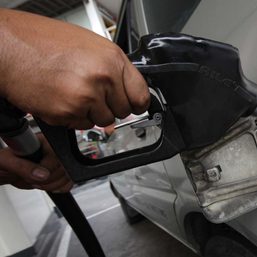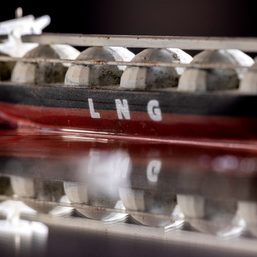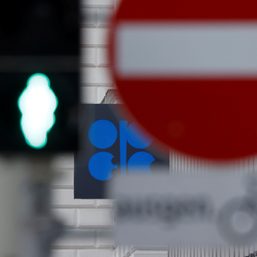SUMMARY
This is AI generated summarization, which may have errors. For context, always refer to the full article.
Anglo-Dutch energy major Royal Dutch Shell posted on Thursday, July 30, a colossal net loss of $18.1 billion (15.4 billion euros) for the 2nd quarter, blaming massive asset writedowns on the coronavirus-hit oil market, and flagged that job cuts are on the way.
The performance, contrasting sharply with profit after tax of $3 billion a year earlier, was sparked by a huge $16.8-billion charge on chronic fallout both from COVID-19 and collapsing oil prices.
The vast charge was taken “as a result of revised medium- and long-term price and refining margin outlook assumptions in response to the COVID-19 pandemic and macroeconomic conditions as well as energy market demand and supply fundamentals,” Shell said in a results statement.
The dire performance meanwhile reflected lower prices for oil, liquefied natural gas (LNG), and gas, while it was also adversely impacted by lower refining margins and oil products sales volumes.
Production dipped 6% to 3.4 million barrels of oil equivalent per day in the reporting period – and is forecast to drop further in the 3rd quarter.
‘Resizing’
“Shell has delivered resilient cash flow in a remarkably challenging environment,” said chief executive Ben van Beurden in Thursday’s statement.
“We continue to focus on safe and reliable operations and our decisive cash preservation measures will underpin the strengthening of our balance sheet.”
And he indicated that job cuts could be on the way in the coming months.
“We will probably see a resizing,” van Beurden told reporters on a conference call when asked about cutbacks.
“We will end up with fewer people. After the summer it’ll be the time to see what comes out in terms of headcount.”
Shell had forecast in June that it would face a charge of between $15 billion and $22 billion in the 2nd quarter, after crude futures had suffered a spectacular crash on COVID-19 fallout, the Saudi-Russia price war, and oversupply.
Both Shell and British rival BP, which reports its earnings next week, have opted to book charges in the 2nd quarter on sustained coronavirus fallout that ravaged the world’s appetite for crude oil.
Oil price crash
Shell had already plunged into the red in the 1st quarter on the oil price crash, which prompted it to cut its shareholder dividend for the first time since the 1940s.
COVID-19 also slammed the brakes on the global economy and savaged oil-intensive industries. The deadly outbreak also sent oil prices off a cliff from March onwards – and even caused them briefly to turn negative in April.
Prices have since rebounded sharply on an easing global crude supply glut and as governments relax lockdowns and businesses slowly reopen.
Crude futures currently stand at about $40 per barrel, which is still well down on the same stage last year.
BP, which is axing around 10,000 jobs or 15% of its global workforce in response to virus turmoil, decided in June to sell its petrochemical business to privately-owned rival Ineos for $5 billion to bolster its finances.
Shell has yet to take such drastic action, but announced in March that it will cut operating costs by $3 billion to $4 billion over 12 months, and reduce its annual spending by one-fifth to $20 billion. – Rappler.com
Add a comment
How does this make you feel?


![[Time Trowel] Evolution and the sneakiness of COVID](https://www.rappler.com/tachyon/2024/02/tl-evolution-covid.jpg?resize=257%2C257&crop=455px%2C0px%2C1080px%2C1080px)







There are no comments yet. Add your comment to start the conversation.